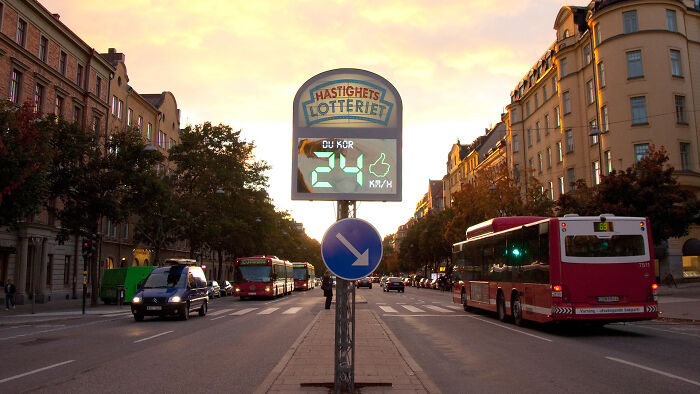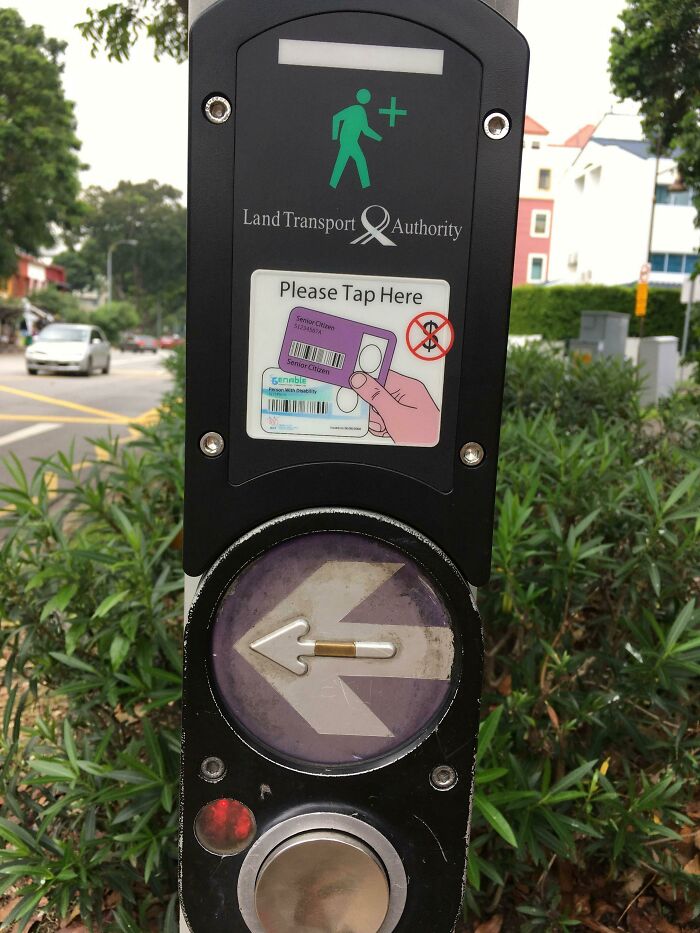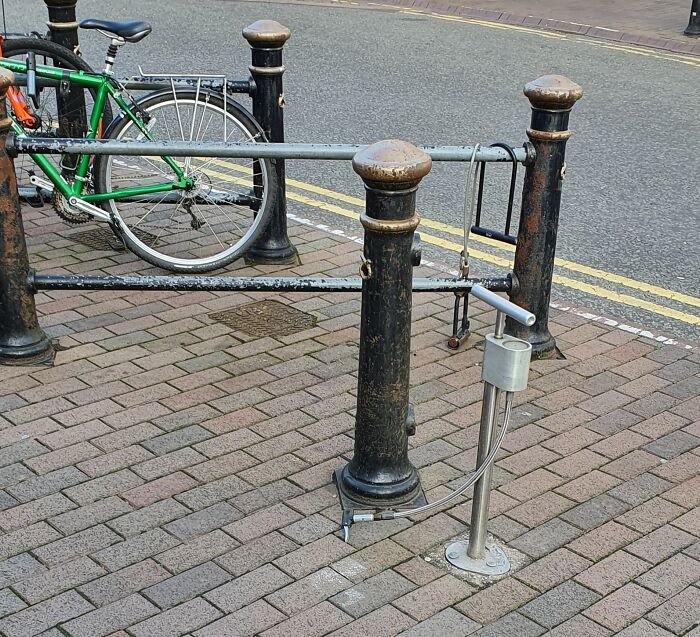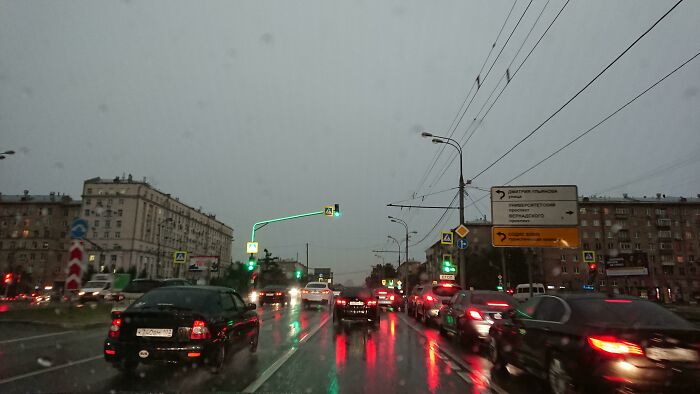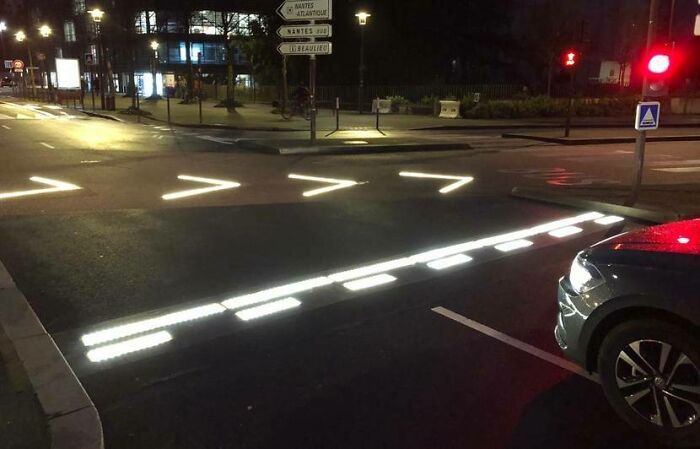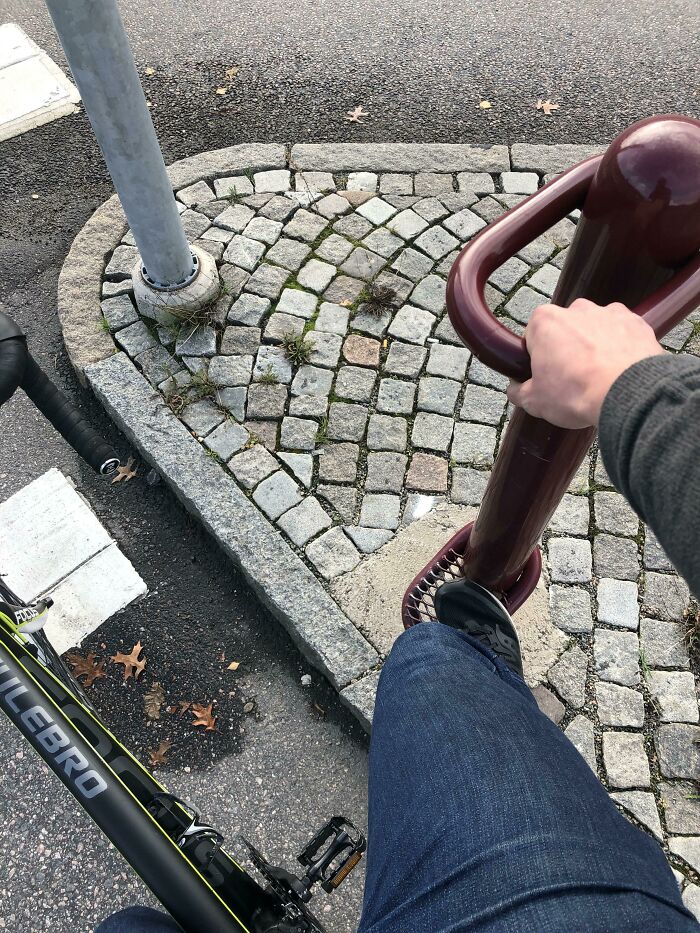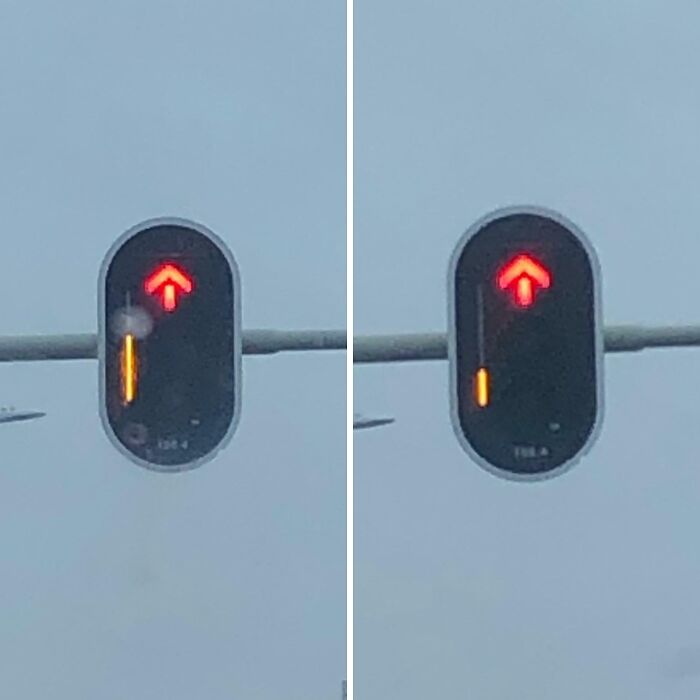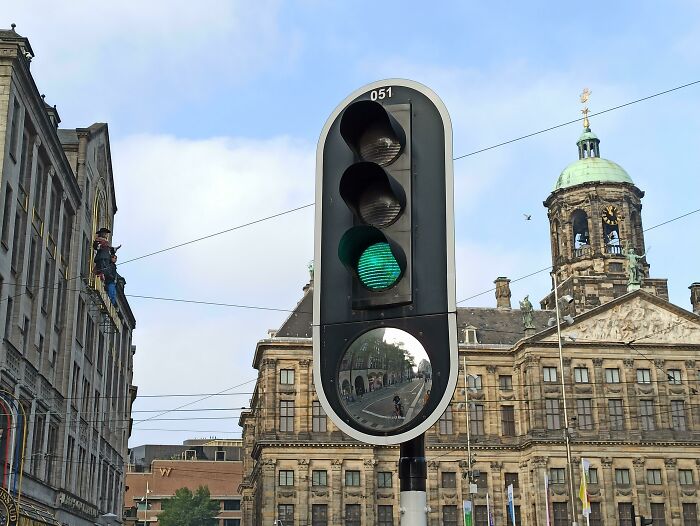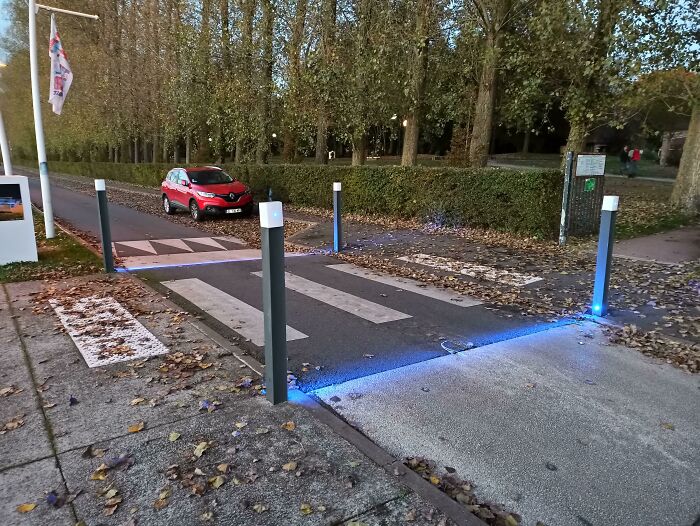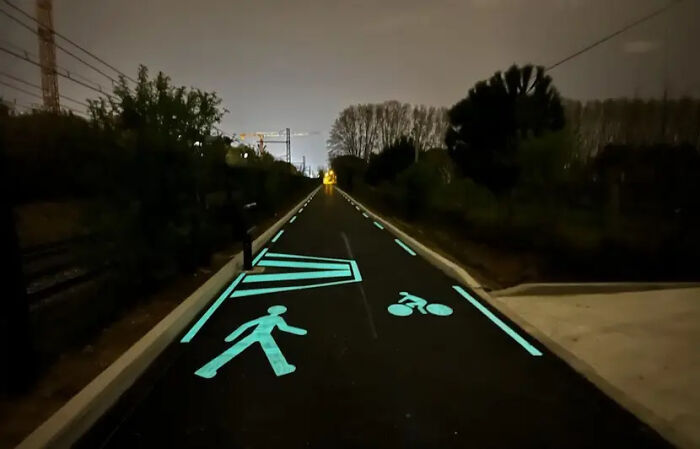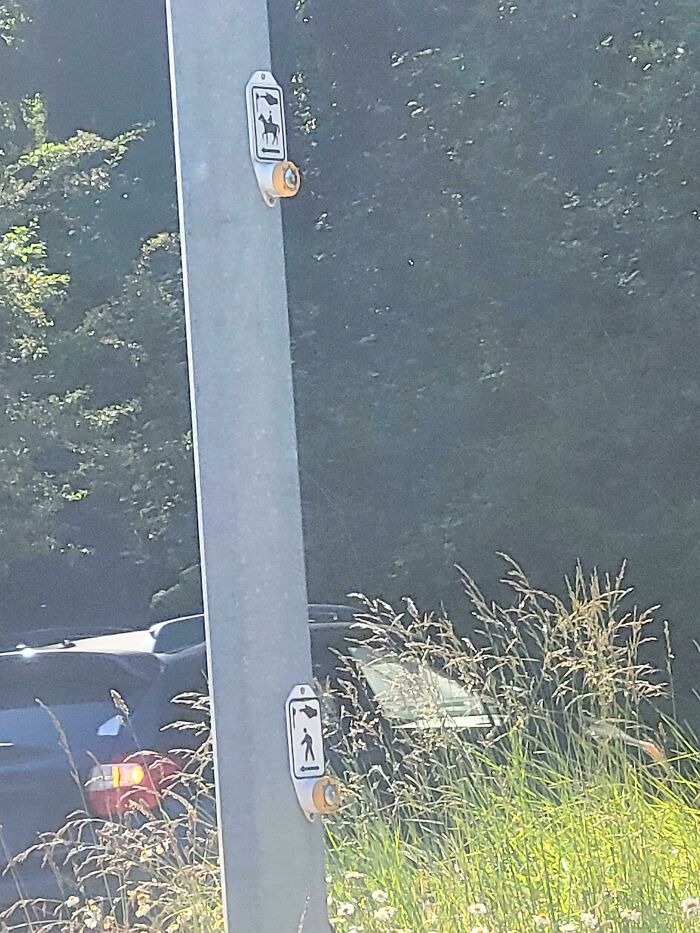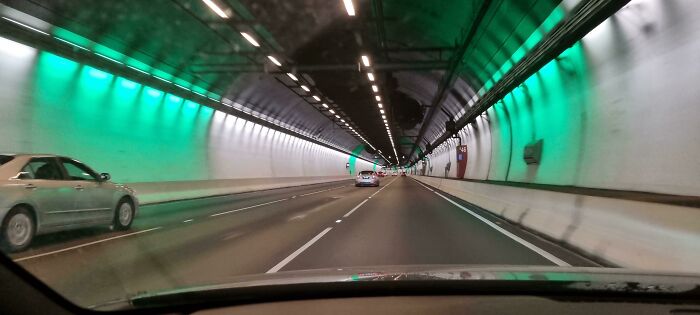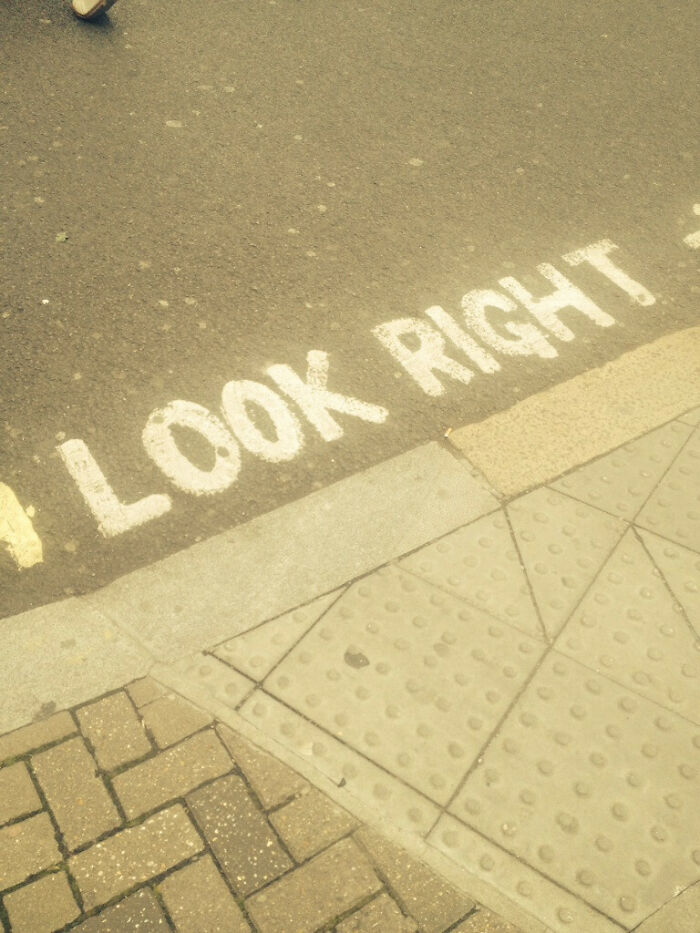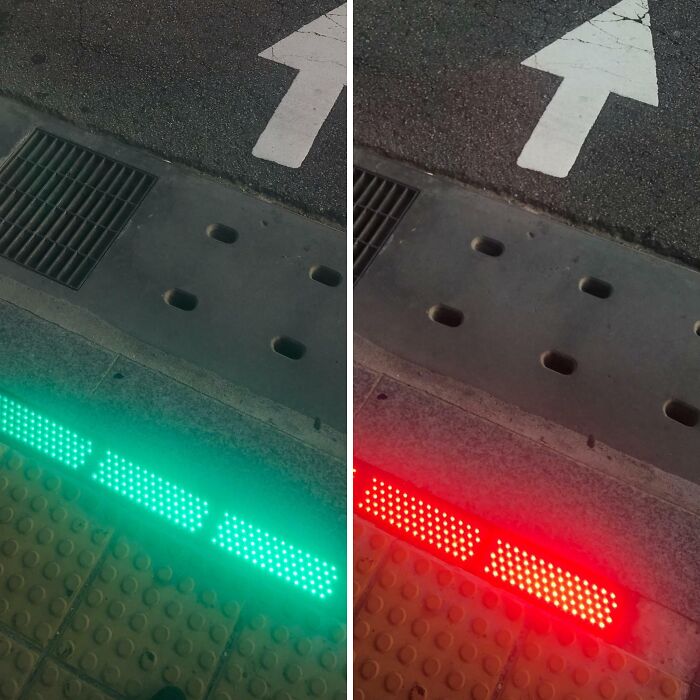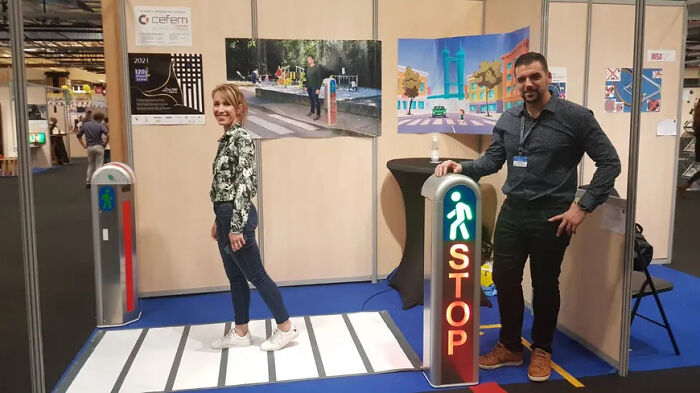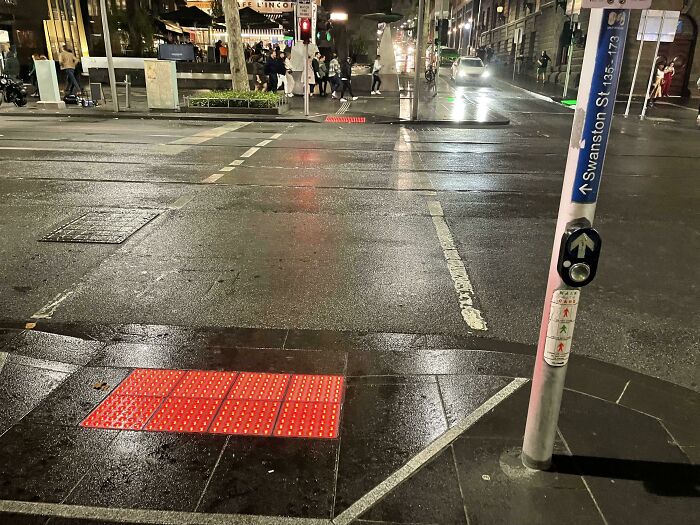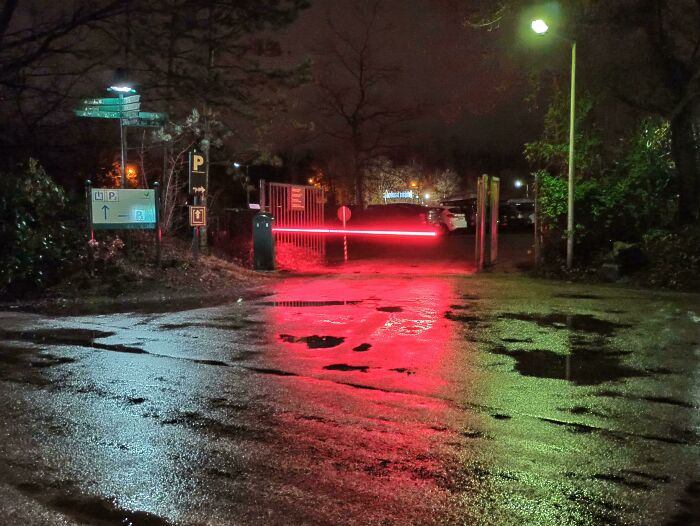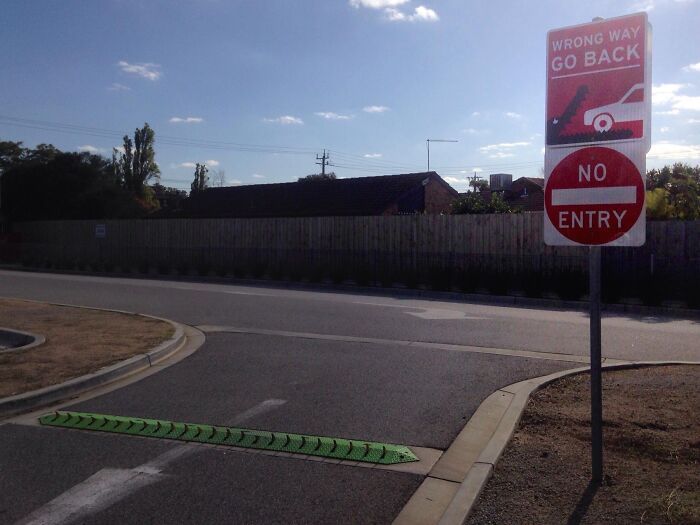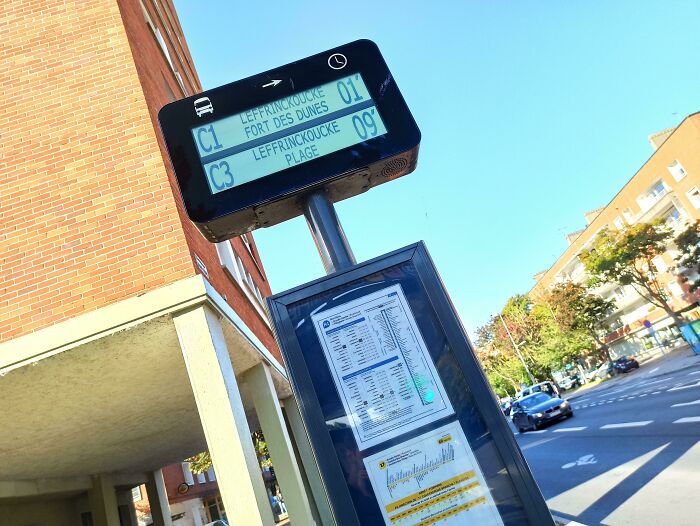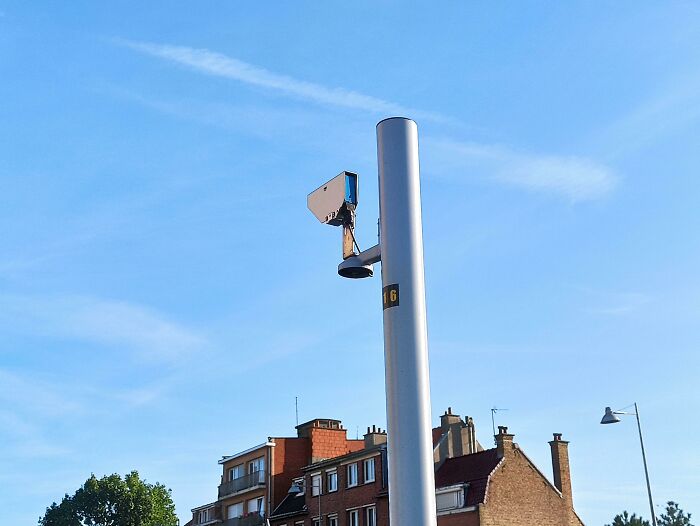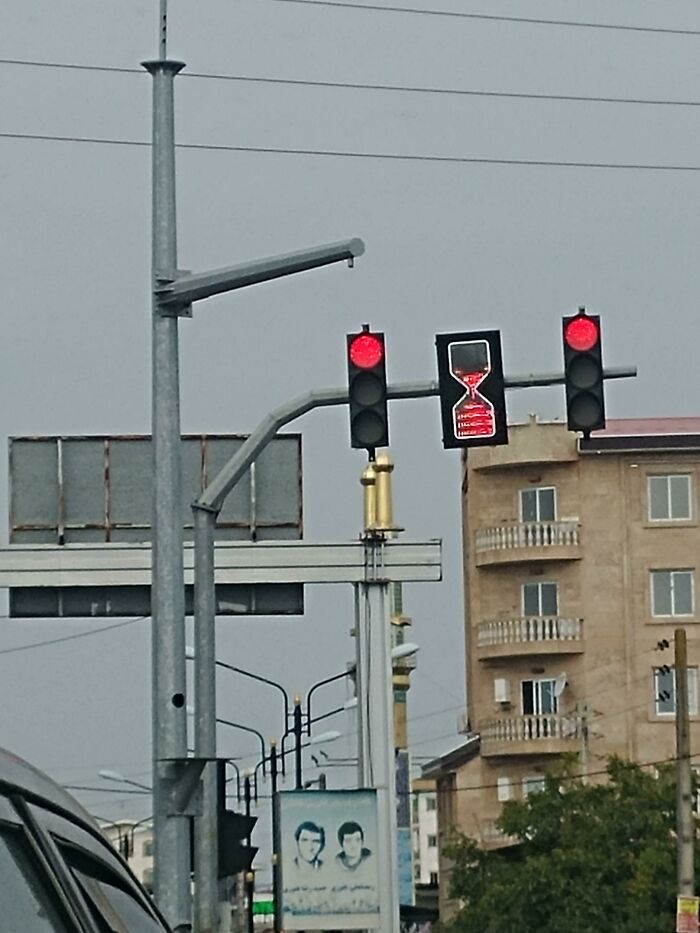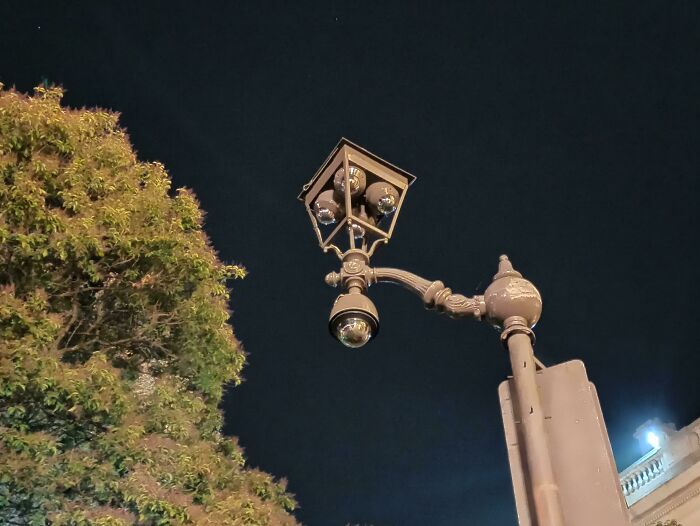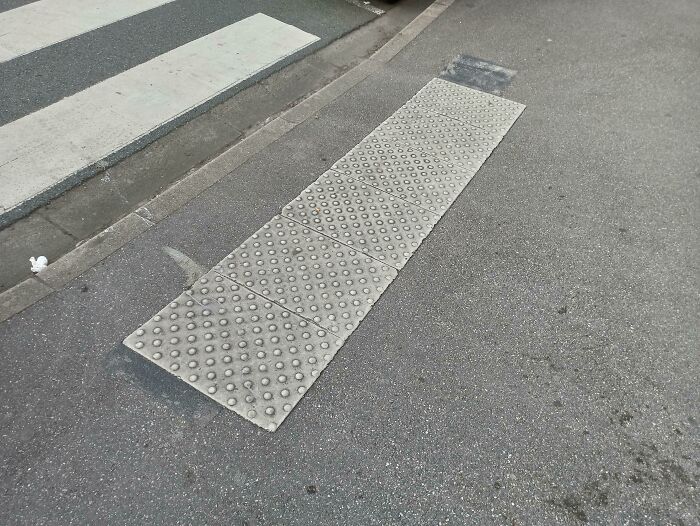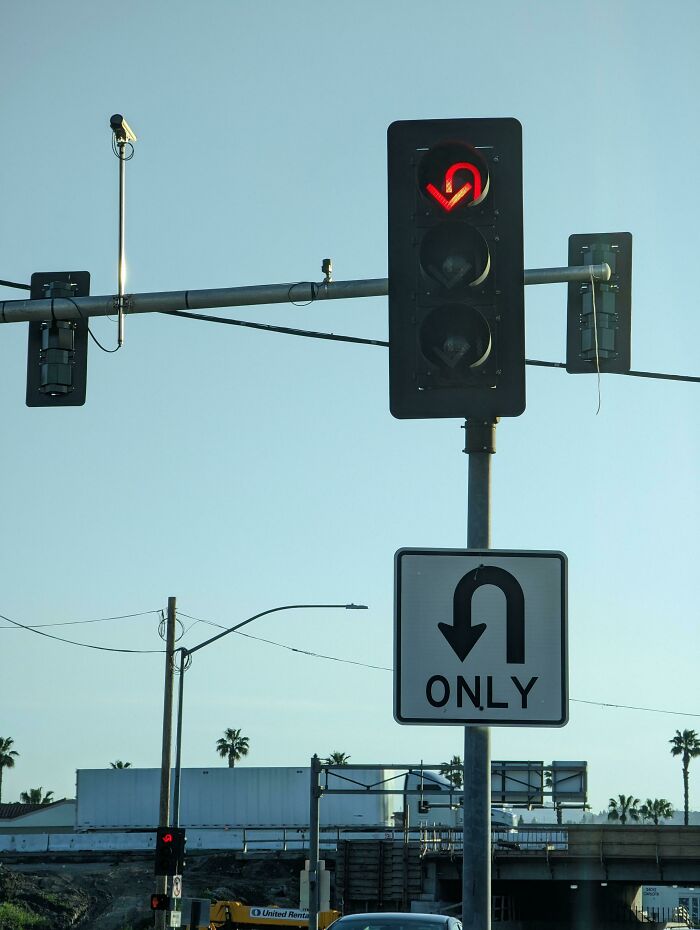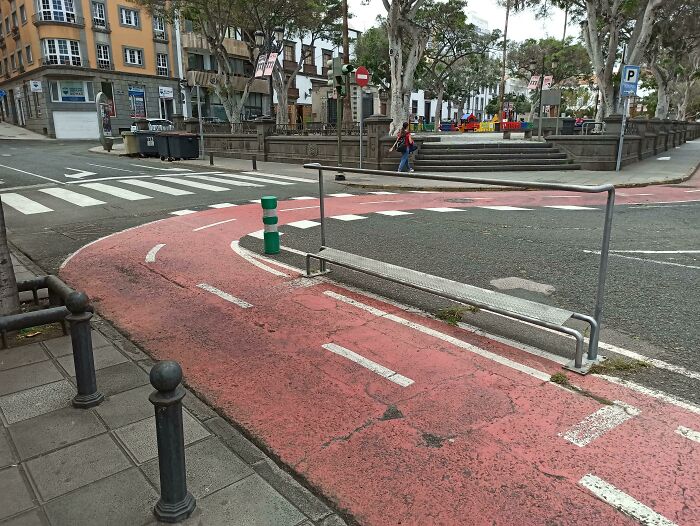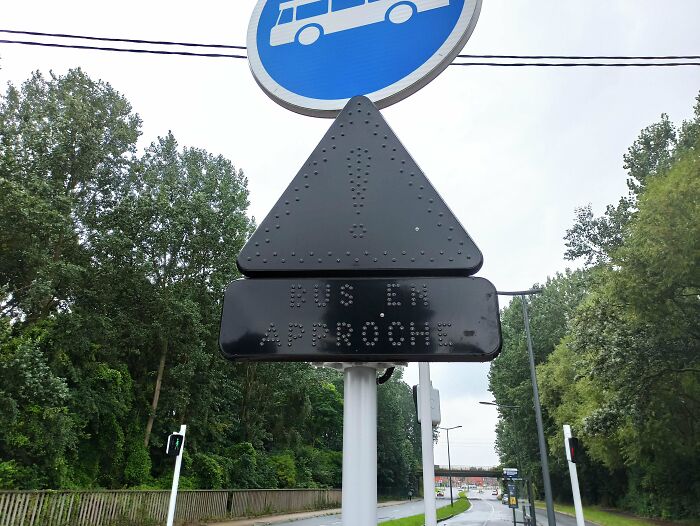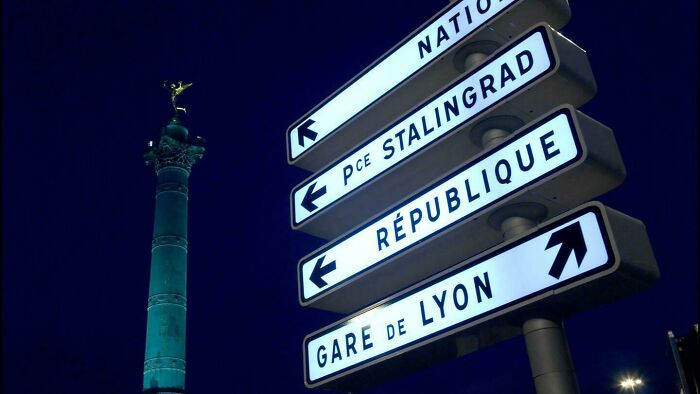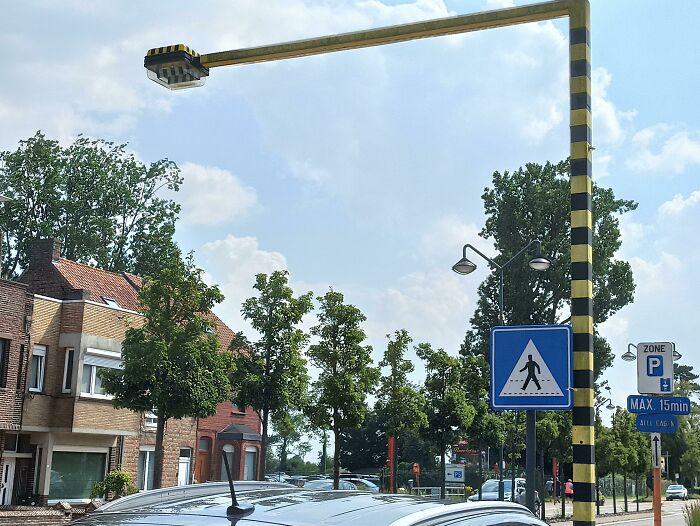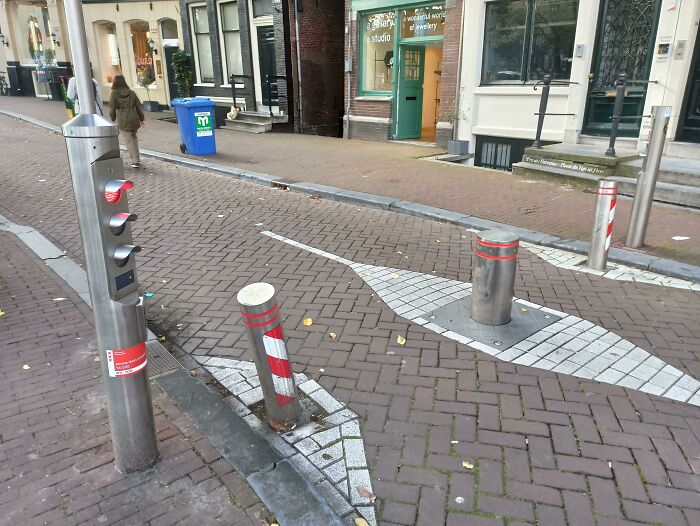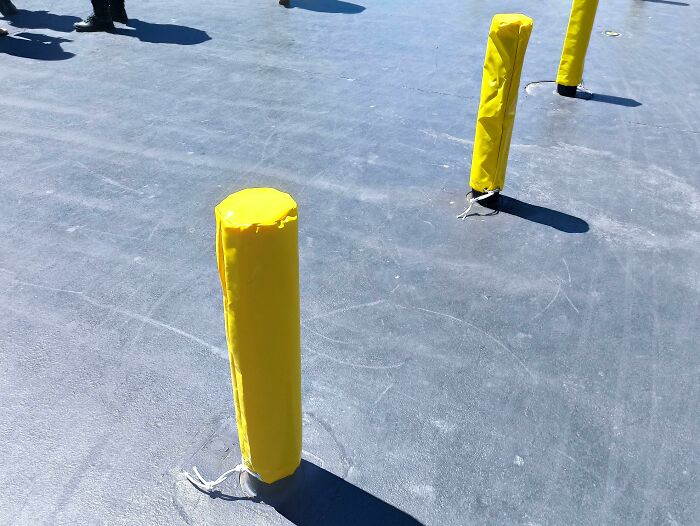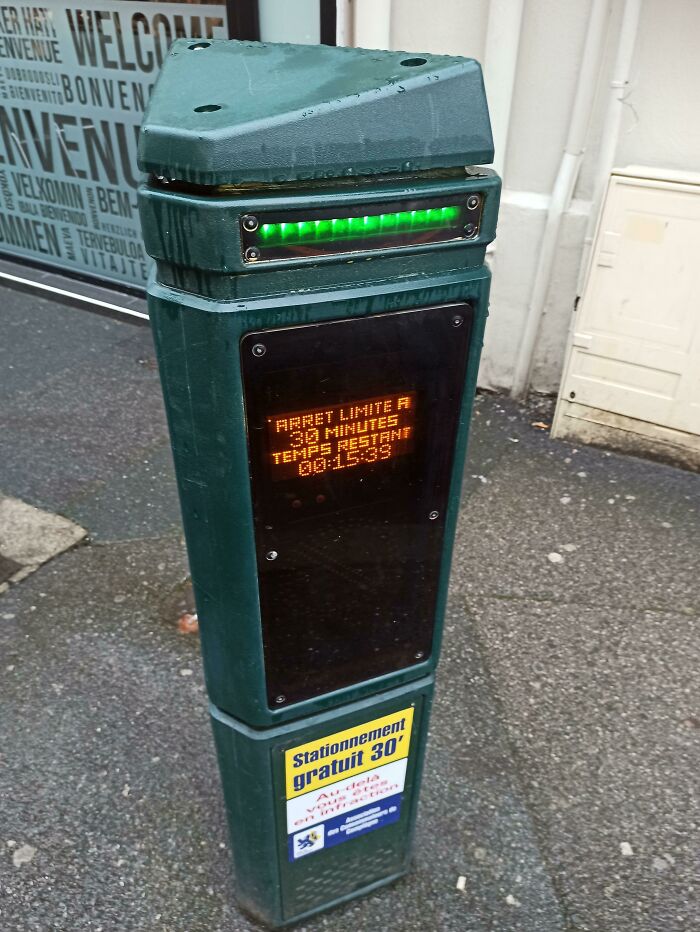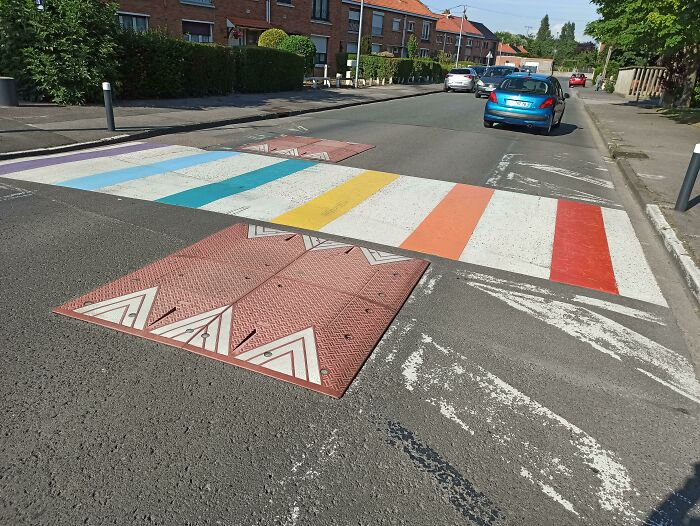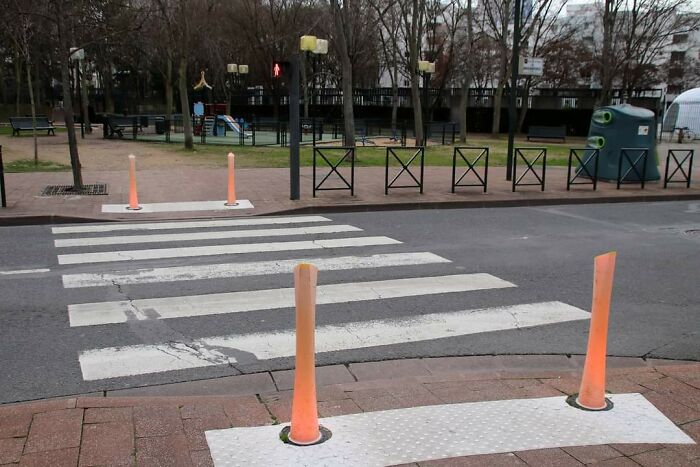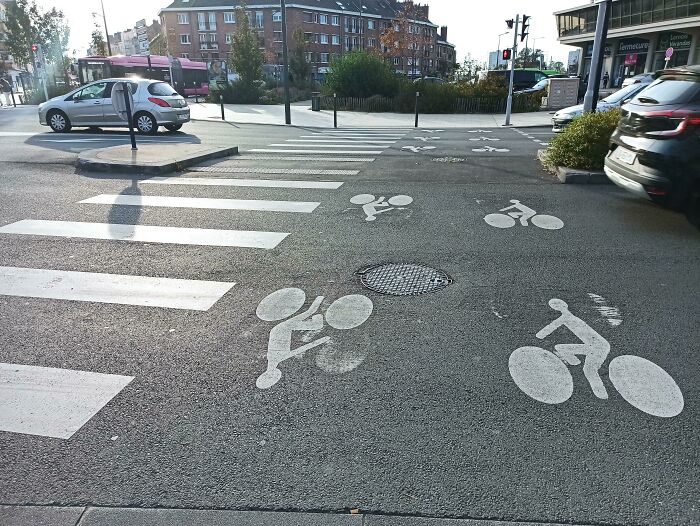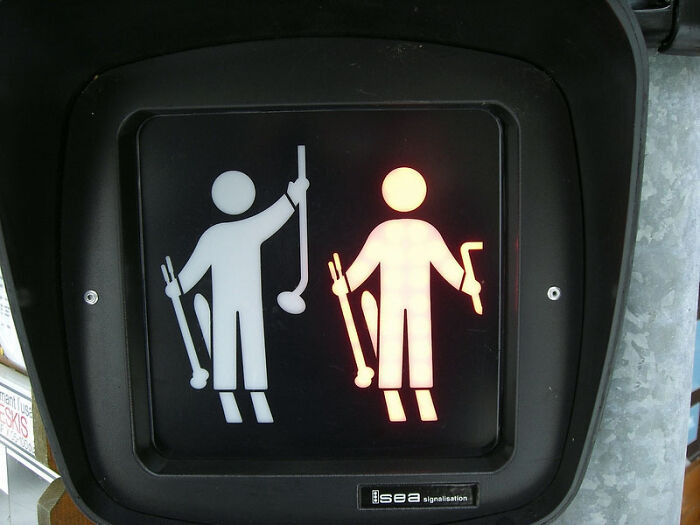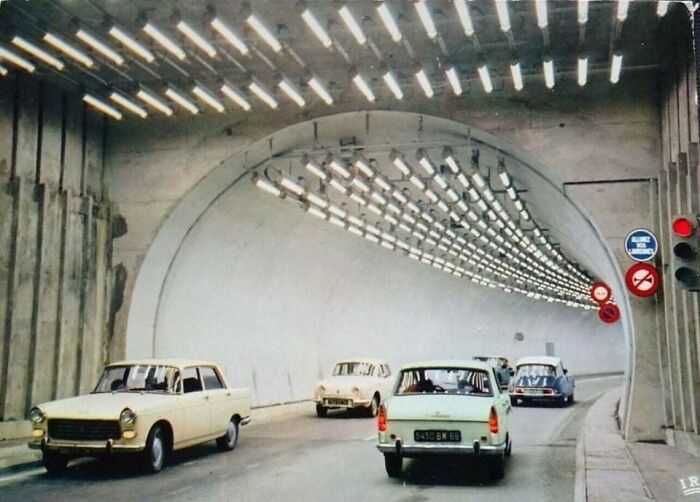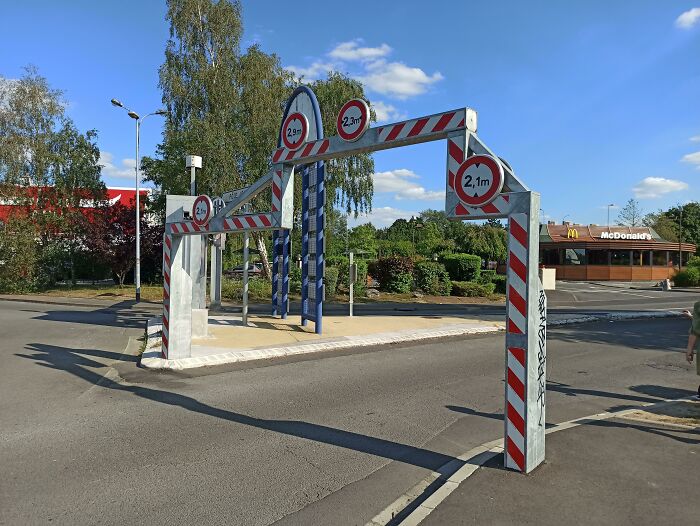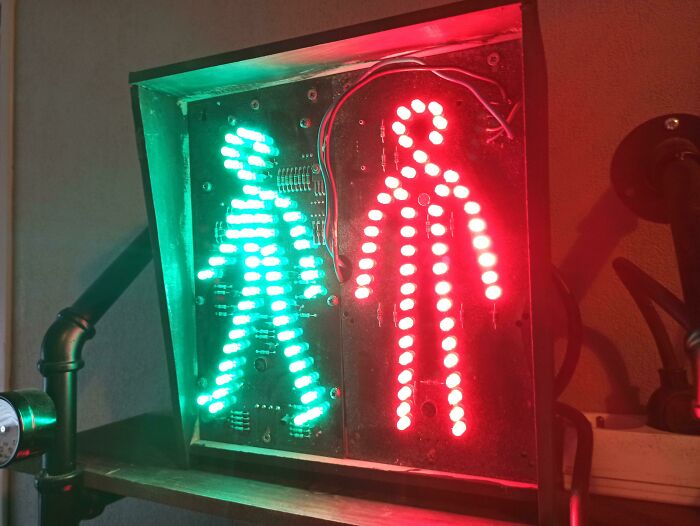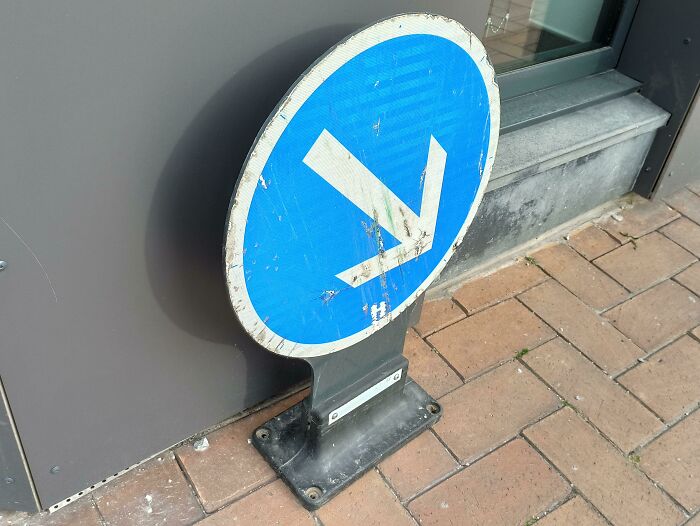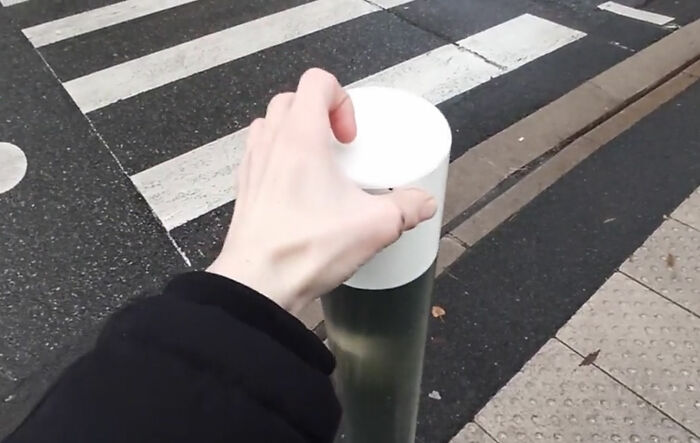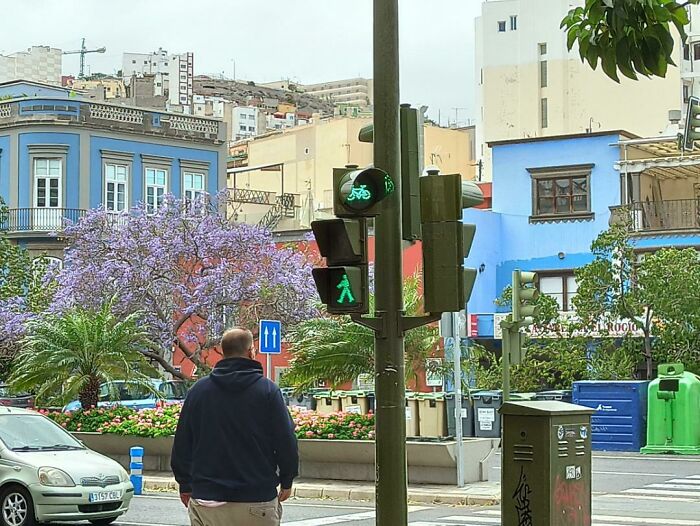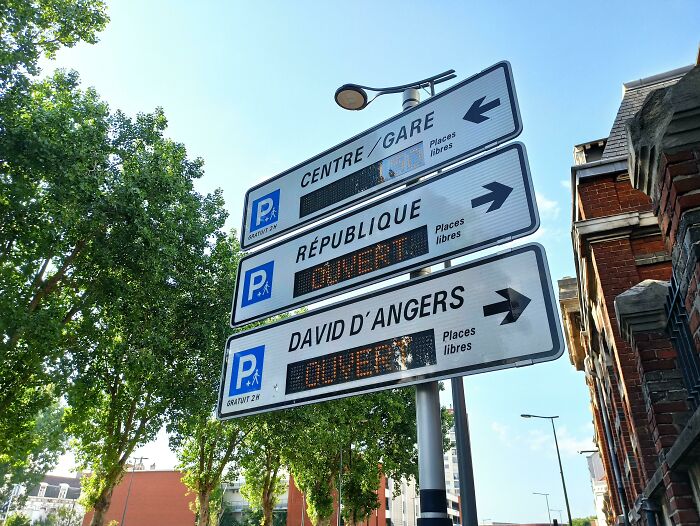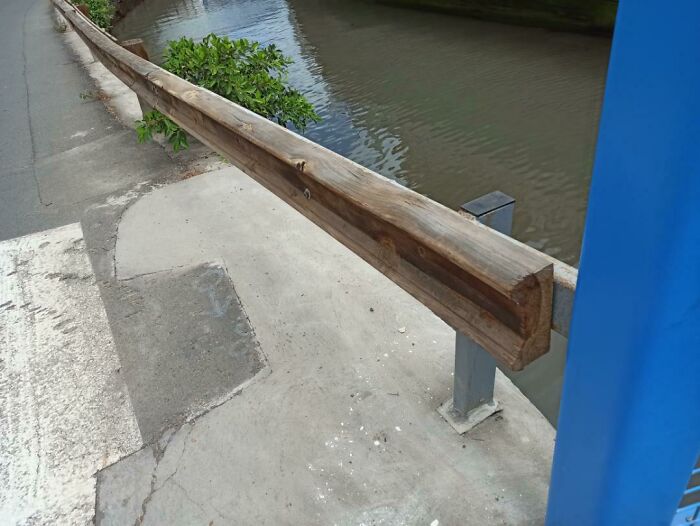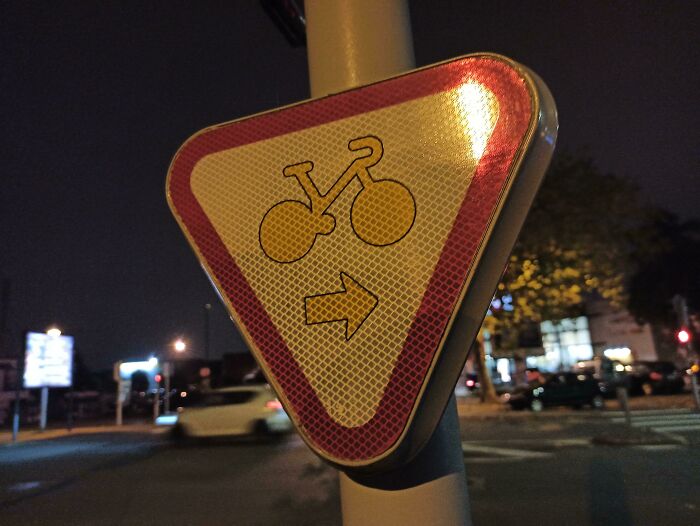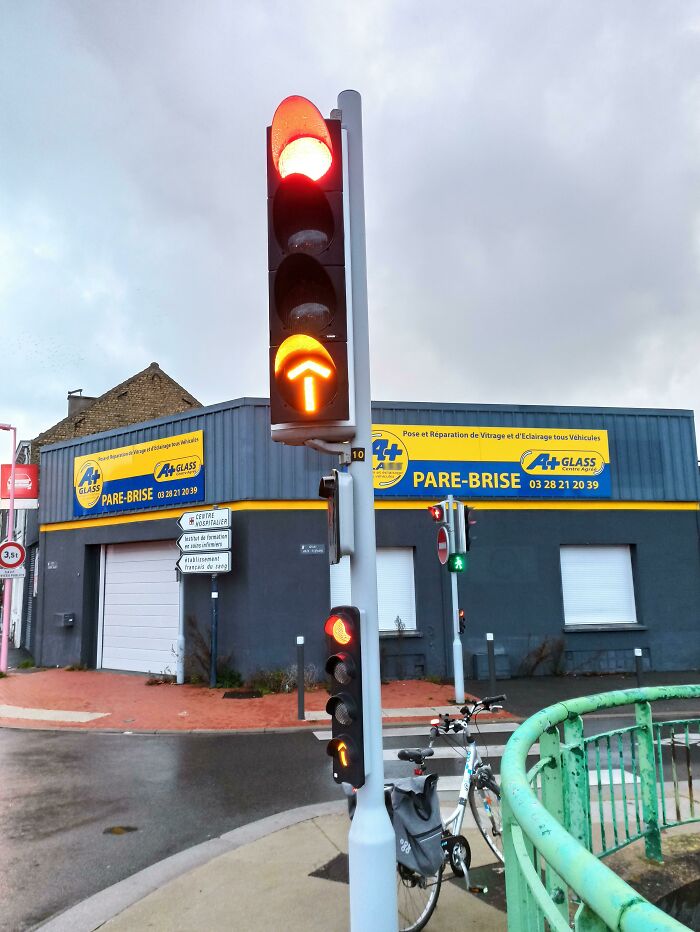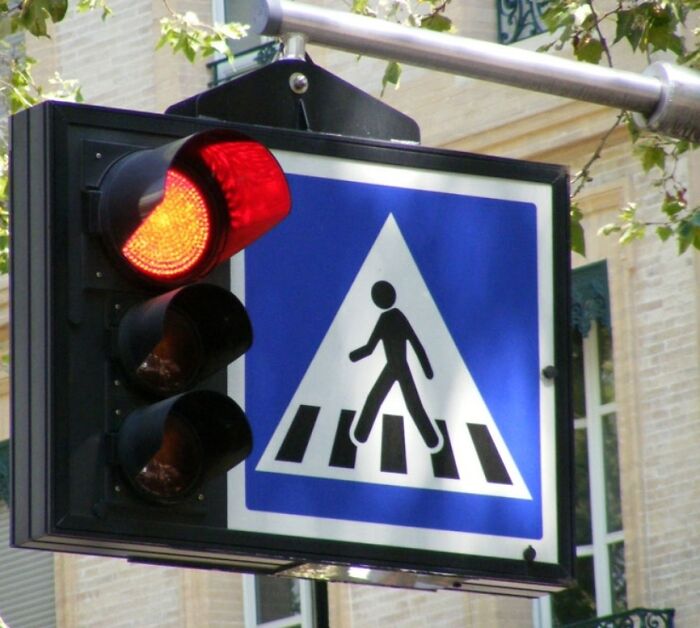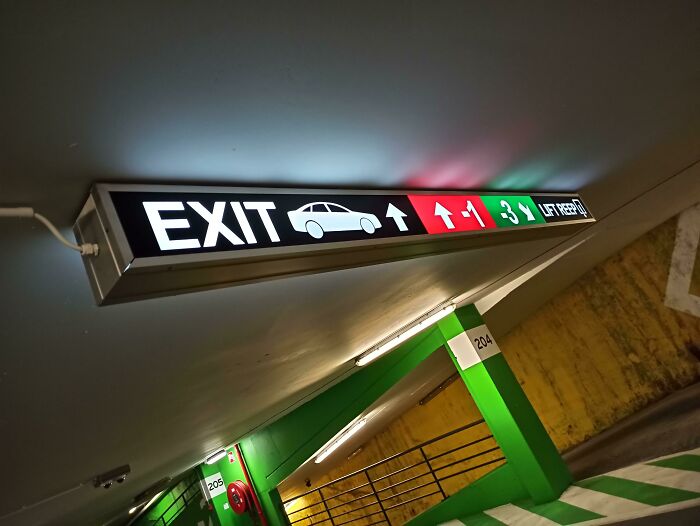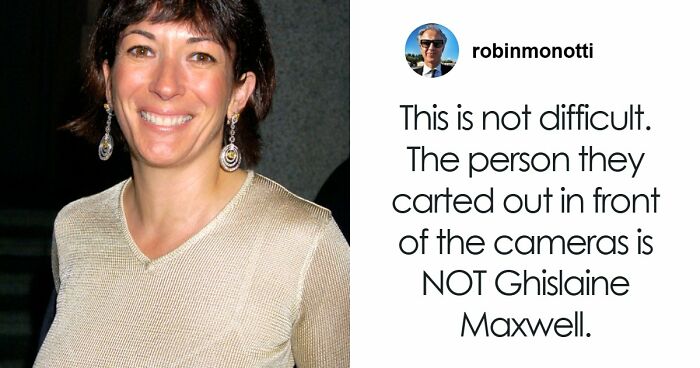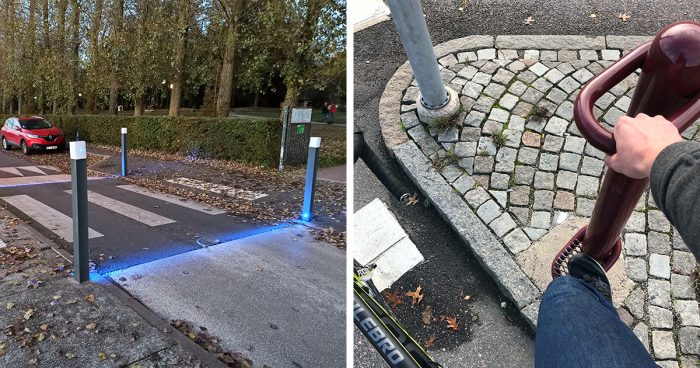
40 Interesting Gadgets From Cities Around The World That Should Be Implemented Everywhere
Have you ever attempted cycling through a city that’s designed purely for cars? It can be a harrowing experience that convinces you to either lock up your bike for a few months or move somewhere with the proper infrastructure for cyclists. Unfortunately, not every city in the world is pedestrian, driver and cyclist-friendly, but there are some with brilliant gadgets that make everyone’s life easier when navigating traffic.
Below, we’ve gathered some of the most innovative tools cities have utilized on their roads that have been shared in the Urban Equipment subreddit. Be sure to upvote the pics you wish were taken in your hometown, and don’t be scared to start pestering your local lawmakers to implement some of this technology as soon as possible!
This post may include affiliate links.
The Speed Camera Lottery In Stockholm, Sweden
Drive at or under the speed limit and you'll be entered into a lottery where the prize fund comes from the fines that speeders pay. Average speed reduced from 32 km/h to 25 km/h (a reduction of 22%).
Singapore Traffic Light Allows Seniors/Disabled To Tap Cards To Add Time To Cross
A Bike Pump Permanently Installed Next To The Bike Lock-Up Area
The Urban Equipment subreddit is dedicated to sharing some of the world’s best traffic lights, benches, street signs and more. The group has only been around since October 2021, but it has already amassed 1.4k members. And lucky for us, the community is great at spotting brilliant traffic gadgets from around the globe that many more cities should start utilizing. Some common topics discussed in the subreddit are road safety, traffic lights, urban decorations, street furniture, and street lights, and this list certainly highlights some of the best ones from around the world. Urban Equipment shows that we can find beauty and excitement in the mundane, including the signs we look at to know it’s safe to cross the street and those we often pass by without a second thought.
When it comes to what makes a city much easier for its inhabitants to navigate, reliable and safe public transport is an incredibly important factor. Unfortunately, not every city in the world has mastered the art of public transit yet, but according to a study conducted by the consulting firm Oliver Wyman and the University of California, Berkeley, the top 10 cities in the world with the best public transportation are: Hong Kong, Zurich, Stockholm, Singapore, Helsinki, Oslo, Tokyo, Paris, Berlin and London. The study’s authors note that some of the areas these cities excel in are affordability, accessibility, having trains/buses/etc. that come often, and keeping transit cars clean.
This Pole Matching The Traffic Light
Luminous Road Markings In Nantes, France
Wow. Around here you can barely see the lines in the middle of the day
A Stand For Bikers To Hold On To While Waiting For The Traffic Lights In Sweden
When it comes to the areas where places who are lagging behind in their public transportation offerings can improve, the study found that over half of the commuters in Canada, the United States and the United Kingdom noted that affordability is key for them. Accessibility and safety tied for their second most important considerations. One city that has mastered these areas is Helsinki. “It’s multimodal, offering travel by bus, tram, metro, train, and ferry,” the study’s authors write. “A journey planner app, created by a startup in Helsinki, integrates and connects each of these different transport modes. A single ticket costs just over $3 and can be used on any travel mode.”
Another important factor to consider when it comes to how we get around is sustainability. The study’s authors note that Europe, particularly cities in Scandinavia, are the role models to look to when working on sustainable mobility. “Oslo, often called the electric vehicle capital of the world, leads that sub‑index for the second year in a row – and is not likely to give up that ranking any time soon, given the lead it has secured,” the authors of the study explain. “The city has a dense network of charging stations and provides a comprehensive package of incentives for electric vehicle owners, like cheaper toll fares and priority access to certain roads. Oslo is home to so many electric vehicle drivers that the city government has even begun dropping some incentives, like free parking, because those incentives are no longer necessary.”
This Traffic Light Shows How Long You Have To Wait
Traffic Light With A Mirror To Allow The Drivers To See The Pedestrians/Cyclists That Are In Their Blind Spots
Luminous Bollards At A Pedestrian Crossing In France
Aside from public transportation and sustainable vehicles, it’s important for cities to cater to those who walk or cycle around as well. Electric bikes and scooters have become increasingly popular in recent years, but it’s hard to incentivize residents to use them if they don’t feel safe on their cities’ streets. That’s why gadgets like the ones featured on this list are so important. They can not only make all of our lives easier, they can also make us much safer. In the United States alone, there were an upsetting 6,516 pedestrian deaths during 2020, with New Mexico being the most dangerous state for pedestrians. And cyclists typically account for about 14% of the national, annual pedestrian fatalities. It’s heartbreaking to know that many of these tragedies could have been prevented with the proper infrastructure in place to keep these pedestrians safe.
Montpellier, France. Test Of A Bicycle Path With Photoluminescent Paint
Great idea as it would fade as the evening went on and limit light pollution
A Button For Crossing The Road On A Horse
These Green Rings Of Light Move At The Pace Of The Speed Limit To Help Gauge Speed
An audit of pedestrian safety in Dallas, Texas, the city with the highest number of pedestrian fatalities in the US in 2020, found that a lack of resources and funding has resulted in crosswalks and pedestrian traffic signals that are severely in need of maintenance. Without anyone keeping up with these things that should be in place to keep us safe on the roads, being a pedestrian becomes extremely dangerous. There was also a study conducted in Phoenix to get to the bottom of why pedestrians are so unsafe there, and it identified “roadway and land-use characteristics” that make crashes more likely to happen, including limited crosswalks, frequent driveway access and signal equipment that needs to be updated.
In London The Road Tells You Which Way To Look For Traffic Coming
This Traffic Light On The Sidewalk For Pedestrians On Their Phones
New French Concept Of A Luminous Bollard For The Pedestrian Crossings Where There's No Traffic Lights, It Turn On When Someone Is Detected
I applaud all these ideas so pedestrians have more lights, warnings etc. but it's the motorists mostly who cause problems. Raise them a bollard in front of a crossing and, trust me, they'll stop. Paying attention or with their nose in the phone, but they will stop.
When it comes to how pedestrian fatalities can be prevented, USA Facts explains that practical improvements such as adding more sidewalks and bike lanes can help protect people who aren’t in vehicles. It’s also wise to reduce speed limits in pedestrian-friendly areas and improve visibility. “Pedestrian crossing islands can help those with limited mobility cross a street safely,” USA Facts goes on to note. “Better signage, including rectangular rapid flash beacons on pedestrian signs and pedestrian countdown timers, can improve pedestrian decision-making and visibility.”
The Tactile Paving Changes Colours Depending On The Traffic Lights
Aren't those tactile paving aimed to blind people? Maybe I'm dumb but, I mean--
And for the visually impaired. People who might have a problem to see the traffic light on the other side of the road, but a glowing square below their feet works fine.
Load More Replies...That Just Encourages Folks to Not Pay Attention to their Surroundings at Traffic Lights!!
This is where I live, Melbourne. The button is more interesting though, because the PB/5 pedestrian button is considered to be the world's best designed.Please read this interesting article about our awesome traffic lights! https://www.dailymail.co.uk/news/article-9395257/Inside-design-Australian-pedestrian-crossing-button-used-Billie-Eilish-song.html
Remote Control Used In France By Blind People To Activate The Sound System Of Pedestrian Traffic Lights
Why can't the traffic lights have sound originally, like in Japan?
Luminous Road Barrier
If you’re curious about the cities around the globe that are the most pedestrian-friendly, we’ve got you covered. According to Culture Trip, the 10 most walkable cities in the world are Florence, New York City, Marrakech, Paris, Vancouver, Buenos Aires, Dubrovnik, Melbourne, Boston, and Vientiane. Now, you can feel free to have a different perspective, pandas, as I’m sure there are plenty of other pedestrian-friendly cities who didn’t make it on this list. But you are guaranteed to have an easy time getting around on foot in any of these locations!
This Kindergarten In Australia Enforcing A One Way Road With Spikes
Must have had a lot of issues here, that is not a common thing to install.
Dunkirk, France, Bus Stop Sign With The Waiting Time
Aren't these everywhere? I come from a crappy post communist country and we have them.
Height Sensor At A Tunnel. If A Vehicle Is Too High, Luminous Warning Signs Will Turn On
If you’re wondering why it’s so important for cities to be walkable, we’ve consulted this article from Congress for the New Urbanism that explains some of the top social benefits that come from pedestrian-friendly cities. First of all, being able to walk places promotes healthier, active lifestyles. This can also improve residents’ happiness and mental health, as walking raises endorphin levels, lowers cortisol levels and can even help us sleep better. Being more active also reduces obesity and helps fight off chronic diseases, so let’s get moving! Being out and about in a walkable city encourages social interaction as well, which can lead to a friendlier, more inviting and safe city. Plus, the more people that are on the streets, the less people there are in cars, which can greatly reduce the number of automobile accidents.
This Hourglass Shaped Traffic Light
Street racers love this intersection. Also, color-blind people absolutely love the subtle gray that the hourglass.
Street Light Modified To Accommodate 4 Surveillance Cameras. Paris, France
Bumpy Plates For Blind People, Everywhere In France, I Hope It's The Same For The Other Countries Too
Being out and about can lead to a decrease in crime as well. “In Rotterdam, Holland, community members identified traffic speed and street appearance as crime issues,” the CNU explains. “Working with police to improve the public realm dramatically cut crime over a period of two years: drug crime dropped by 30 percent, burglary by 22 percent, and vandalism by 31 percent.”
Walkable cities can also do wonders in broadening universal accessibility and encouraging inclusiveness. “Everyone, at some point, is a pedestrian. Successful public transportation generally begins and ends with a walking trip,” the CNU notes. “Even those who generally drive will find themselves on a crosswalk from time to time. Especially people without a car may be able to easily access their daily needs in a walkable community. Boosting walking helps to unlock the city for many of those who are most in need.”
This U-Turn Only Traffic Light
Metal Equipment That Allow Cyclists To Stand Up Straight While Being Stationary Waiting For The Green Light. Spain
"Incoming Bus" Luminosities Sign, When A City Bus Is Coming, The Sign Is Turned On To Warn The Drivers, France
That would be nice where I live… the bus is always late so you never know when it’ll show up
I don’t know about you, pandas, but I’m certainly jealous of all of the cities who have these fabulous gadgets that make pedestrians’ and drivers’ lives easier. We hope you’re enjoying this list and that you’re getting some ideas of what to start pestering your local city planners about. Keep upvoting the tools you find most appealing, and let us know in the comments if your city has already implemented any of this technology. Then, if you’d like to check out another Bored Panda article featuring excellent examples of urban planning, look no further than right here!
Luminous Direction Sign In Paris
Special Light For Pedestrian Crossing, Belgium
Controlled Access Area System In Amsterdam, Netherlands
Yellow Covers To Increase The Visibility Of Bollards During An Event
Bollard That Displays The Remaining Allowed Parking Time For Cars (30 Minutes For Each Car). France
This seems like it would only be helpful to folks writing tickets… 🤣
Colourful Crosswalk, France
Luminous Bollards That Change Of Color Depending Of The Pedestrian Signal Color. La Défense, France
Pedestrian Crossing + Bicycle Crossing In France
Do cyclists actually pay attention and use it correctly? Or do they just weave around through people and traffic like they do everywhere else?
French Pedestrian Signal Used For Some Ski Lift
Lighting Of The "Tunnel Du Mont Blanc" , France, In The 60s
I see a Citroen DS, one of the most beautiful (and comfortable) cars ever built (R hand side at the front, blue with a white top)
Multiple Heights Road Barrier
French Pedestrian Signal LED Panels
Road Separator Sign Used In France, It Can Bend In Case Of Accident
That’s actually a European norm : every road sign close to a traffic lane has to be made to easily bend if crashed into.
Rubber Pole To Limit The Danger For The Bicyclists/Bikers And For A Better Durability Against Small Impacts
Pedestrian Light / Bike Light Mix, Spain
Via Linea Range Of Road Signs, Integrated Screen Version
Wood Guardrail
Article title: “40 Interesting Gadgets From Cities Around The World”… I’m not sure a wooden board bolted to a guardrail is a “gadget”… XD
Road Sign Fixed On The Traffic Light Poles In France That Allow The Bikes To Cross A Red Light To Follow The Arrow
Yellow Arrow In France. Allow You To Run A Red Light If You Go In The Same Way Than What The Arrow Indicate
Traffic Light Integrated Into A Metal Box With A Sign + A Light Under It For The Pedestrian Crossing. From France
But don't you have to always stop for pedestrians on a crosswalk? So there should be no need for a traffic light...in my opinion this may make situations tougher if there is a crosswalk without a traffic light because drivers are then used to look for the light, not for the people...I don't know how to put this in words, but I hope you understand what I want to say
Parking Luminous Sign
"48 Brilliant Gadgets From Cities Around the World", apparently the world is just Europe and France.
That’s where most of the innovations come from.. Should 18 lanes highways in the middle of a city, from the USA or China, be part of this list? That’s what I thought.
Load More Replies...Many of these are common all over Europe, and probably outside of Europe too, not just specific cities. Like parking spot indicators, pedestrian crossing lights, crossings for cyclists, electronic bus timetables, etc. Makes me wonder. Are these not common in the US?
Around DC area, some of these innovations are being installed, but they're not common outside of nicer parts of town
Load More Replies...One thing not on the list, and very common in France, is to have a little traffic light below the big one, so you don't have to crane your neck to see if the lights change. (Love that) Also, temporary traffic lights will tell you how long you have to wait in seconds. And then there are traffic lights elsewhere which are mounted on the opposite side of the road where you are stopping, so you can see them no matter what is in front of you. (Lorry anyone?)
It's the 21st century. Why can't we have cameras/sensors detecting if someone is still in the crosswalk to decide how much longer to hold the light? Handicapped/elderly people would appreciate the automatic duration extension. Drivers would appreciate the automatic duration shortening when a cyclist presses the walk button and crosses in 5 seconds. It would also help reduce idiot drivers stopping in the crosswalk, once it became common knowledge that a car covering up part of the crosswalk could be mistaken for a pedestrian, causing that car's light to stay red for the maximum duration.
Because kids who have nothing better to do would stand in the crosswalk and watch the cars back up.
Load More Replies...In the US we have an app called Be My Eyes. You register your phone number and if a blind person needs help ( for instance, I helped a lady find the chips she wanted at the grocery store) the app will call your phone like face time and you help them with what they need. It's cool!
Minnesota has their stop signs painted red in the back. Really helpful at 4ways.
These are pretty neat. Then I starting wondering if they are necessary because people are getting dumber.
Lots of pedestrian crossing entries, but no mention of the spinning bit most UK crossings have for deaf/blind pedestrians
I really like any of these that make road regulations adapt to current situation. I don't like all the road regulations meant to punish people for using motorized vehicles - first, on a bike, you can evade almost everything and still not endanger yourself or other people, second, using a car in a major city already sucks as it is. We don't need to chop off right-turners tangents (they are actually an improvement to safety AND efficiency AND reduce waiting time). I prefer the public transport and bike traffic being supported and being the better option, but if I have to buy an oven, I don't need punishing regulations to not use a car if I don't. And, it triggers a desire for disobedience, if it feels like traffic regulations are neither aiming at safety nor efficiency, but at berating people. Hey, you are not allowed to turn right here anymore, gotta wait in line behind the trarric light, idling or stopping and starting again (even with start-stop AND energy recovering brakes, it still is a waste of a little gas each time - we have enough of a precious ressource of that, one of which the use also has a negative impact? Didn't know the world is THAT far better off than I am... No, regulations should aim at making traffic safe - efficient - comfortable - encourage choices that make sense. In THAT order. Neither I, nor the city, is everybody's mother, you know...
"48 Brilliant Gadgets From Cities Around the World", apparently the world is just Europe and France.
That’s where most of the innovations come from.. Should 18 lanes highways in the middle of a city, from the USA or China, be part of this list? That’s what I thought.
Load More Replies...Many of these are common all over Europe, and probably outside of Europe too, not just specific cities. Like parking spot indicators, pedestrian crossing lights, crossings for cyclists, electronic bus timetables, etc. Makes me wonder. Are these not common in the US?
Around DC area, some of these innovations are being installed, but they're not common outside of nicer parts of town
Load More Replies...One thing not on the list, and very common in France, is to have a little traffic light below the big one, so you don't have to crane your neck to see if the lights change. (Love that) Also, temporary traffic lights will tell you how long you have to wait in seconds. And then there are traffic lights elsewhere which are mounted on the opposite side of the road where you are stopping, so you can see them no matter what is in front of you. (Lorry anyone?)
It's the 21st century. Why can't we have cameras/sensors detecting if someone is still in the crosswalk to decide how much longer to hold the light? Handicapped/elderly people would appreciate the automatic duration extension. Drivers would appreciate the automatic duration shortening when a cyclist presses the walk button and crosses in 5 seconds. It would also help reduce idiot drivers stopping in the crosswalk, once it became common knowledge that a car covering up part of the crosswalk could be mistaken for a pedestrian, causing that car's light to stay red for the maximum duration.
Because kids who have nothing better to do would stand in the crosswalk and watch the cars back up.
Load More Replies...In the US we have an app called Be My Eyes. You register your phone number and if a blind person needs help ( for instance, I helped a lady find the chips she wanted at the grocery store) the app will call your phone like face time and you help them with what they need. It's cool!
Minnesota has their stop signs painted red in the back. Really helpful at 4ways.
These are pretty neat. Then I starting wondering if they are necessary because people are getting dumber.
Lots of pedestrian crossing entries, but no mention of the spinning bit most UK crossings have for deaf/blind pedestrians
I really like any of these that make road regulations adapt to current situation. I don't like all the road regulations meant to punish people for using motorized vehicles - first, on a bike, you can evade almost everything and still not endanger yourself or other people, second, using a car in a major city already sucks as it is. We don't need to chop off right-turners tangents (they are actually an improvement to safety AND efficiency AND reduce waiting time). I prefer the public transport and bike traffic being supported and being the better option, but if I have to buy an oven, I don't need punishing regulations to not use a car if I don't. And, it triggers a desire for disobedience, if it feels like traffic regulations are neither aiming at safety nor efficiency, but at berating people. Hey, you are not allowed to turn right here anymore, gotta wait in line behind the trarric light, idling or stopping and starting again (even with start-stop AND energy recovering brakes, it still is a waste of a little gas each time - we have enough of a precious ressource of that, one of which the use also has a negative impact? Didn't know the world is THAT far better off than I am... No, regulations should aim at making traffic safe - efficient - comfortable - encourage choices that make sense. In THAT order. Neither I, nor the city, is everybody's mother, you know...

 Dark Mode
Dark Mode 

 No fees, cancel anytime
No fees, cancel anytime 


